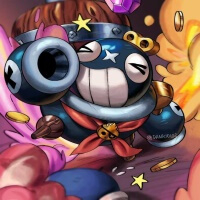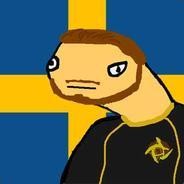By getting a degree from a liberal-arts college.
Perhaps that single sentence says everything of importance there is to say about getting into journalism. But then there are a few other things that should be said too.
For one thing,* training for journalism is different in the latter years of the twentieth century from what it was in the earlier years. I remember my first day as a reporter on the World in New York. Although I had previously worked a bit as a reporter in Springfield, I came to metropolitan journalism and the famous World after my final year at the School of Journalism at Columbia,plus a scholarship abroad.1 was pleased, after all this, to be in the big time at last. I could stay at my desk as I turned in my first modest assignment, simply shouting “Copy!” and a copy boy came over to get my work of art and take it to the desk.
It was not long before one of those old-timers in a green eye-shade got up from the desk and wandered my way. “Did you write this piece?” he asked me. When I confessed that I had, he pressed me further: “Didn’t you go to that School of Journalism at Columbia?” When I again confessed, he seemed mollified at such willingness to admit sin. In a friendly fashion he put an arm around my shoulder, and said: "Now listen. The first thing you want to do is forget everything they told you up there.”
This old-timer reflected the most universal attitude of the time. Much earlier Horace Greeley is reputed to have said: “Of all people I want least to sec in my office is a college graduate!” And they say that Stanly Walker, city editor" of the New York Herald Tribune in the late twenties and early thirties, once glared at a job-seeking college-graduate applicant, and asked "Have you ever been to a journalism school?” When the applicant stammered that regrettably he had not, Mr. Walker said, or so the story runs, “You’re hired!"
Finally, there was Captain Joe Patterson, co-founder of that first successful tabloid,13 the New York Daily News. When in the mid-thirties the Columbia School of Journalism changed from an undergraduate to a graduate school, and in tire process shortened its course from two years to one, Patterson wrote an editorial1' that as I recall began in this way: "The School of Journalism at Columbia has shortened its course from two years to one. This is a step in the right direction. If now they will shorten the course by one more year, they will have it right”.
b) Say which of the following statements are true according to the text. If not explain why:
1. The Columbia School of Journalism shortened its course from three years to two The author of the text is a British journalist who had undergone a one-year full-time course organized by tire National Council for the Training of Journalists.
2. When the author came to the small-town newspaper he felt very shy and did not know what to do.
3. As soon as the youngster came to the editorial office of the new spaper he was given an assignment of paramount importance.
4. In the earlier years of the twentieth century editors highly appreciated college-graduate applicants and willingly hired them.
5. The author of the text graduated from a liberal-arts college and got a scholarship abroad.
6. The old-timer advised him to apply all his knowledge received at the college to his job in tire newspaper.
7. All the journalists quoted in the text held the same opinion.
8. The city editor of the AW' York Herald Tribune was greatly pleased to hear that the job-seeking applicant was a college-graduate.
9. It was no news for the old-timer that the beginner was a college- graduate because he had met him before.
10. The main idea of the text is that the best education for a would - be journalist is one-year part-time study.
c) Sum up what the text has to say on each of the following points:
1. The author's biography and career.
2. The opinion of the professionals on journalist education in the early years of the century.
3. The first day of the author in the editorial office of the World.
4. Give examples of the author's humour.
184
367
Ответы на вопрос:
be(наст вр) was(прош вр) wil be(буд вр)
become became will become
begin begun will begin
Реши свою проблему, спроси otvet5GPT
-
Быстро
Мгновенный ответ на твой вопрос -
Точно
Бот обладает знаниями во всех сферах -
Бесплатно
Задай вопрос и получи ответ бесплатно

Популярно: Английский язык
-
Передайте следующие предложения в passive voice. 1) we turn on the...
 тетямотя715.04.2020 10:19
тетямотя715.04.2020 10:19 -
Найти ошибку в данном предложении my mother won t let anybody to...
 Noname01020305.05.2023 13:29
Noname01020305.05.2023 13:29 -
Переведите текст. когда джон(его сын) вырос, отец рассказал ему...
 gabadunka21.03.2020 07:31
gabadunka21.03.2020 07:31 -
По языку 3 предложения сравнительных 3 восхитительных...
 riaskor28.02.2023 11:39
riaskor28.02.2023 11:39 -
Write a paragraph about a wild animal. write: •its name •what it...
 dfgdfh203.08.2020 11:48
dfgdfh203.08.2020 11:48 -
Написать сочинение на языке про шотландию или ,примерно про флаг,столицу...
 шалабам29.01.2020 00:45
шалабам29.01.2020 00:45 -
Как будет на 7: 25,8: 05,9: 38,10: 50,11: 30,2: 12,3: 44,4: 17...
 юрий11329.04.2022 12:35
юрий11329.04.2022 12:35 -
Написать 5-7 проблем школьников дома и в школе на . заранее...
 Amyy120.05.2020 22:16
Amyy120.05.2020 22:16 -
Надо на написать 8 предложений про весну 25 !...
 sergeyfedorov214.08.2020 07:02
sergeyfedorov214.08.2020 07:02 -
Напишите эссе на тему «Моя любимая книга ...
 Zeka21109.08.2021 11:26
Zeka21109.08.2021 11:26

Есть вопросы?
-
Как otvet5GPT работает?
otvet5GPT использует большую языковую модель вместе с базой данных GPT для обеспечения высококачественных образовательных результатов. otvet5GPT действует как доступный академический ресурс вне класса. -
Сколько это стоит?
Проект находиться на стадии тестирования и все услуги бесплатны. -
Могу ли я использовать otvet5GPT в школе?
Конечно! Нейросеть может помочь вам делать конспекты лекций, придумывать идеи в классе и многое другое! -
В чем отличия от ChatGPT?
otvet5GPT черпает академические источники из собственной базы данных и предназначен специально для студентов. otvet5GPT также адаптируется к вашему стилю письма, предоставляя ряд образовательных инструментов, предназначенных для улучшения обучения.
